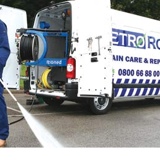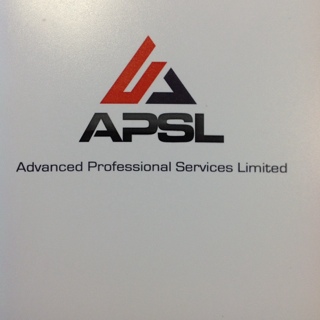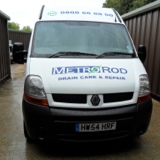Information
Vehicle, Engineer and Equipment Check List
-
Audit month
- Yes
- No
- N/A
-
Engineer name
- Yes
- No
- N/A
-
Vehicle registration
- Yes
- No
- N/A
-
Vehicle make & model
- Yes
- No
- N/A
-
Vehicle mileage
-
Location
Section 1
Section 1 - VEHICLE
Section 2
Section 2 - WATER JETTER
-
2.1 Water Jetter - Make / Model / Pressure / Flow - Double click here to add notes / image of Jetter
- Yes
- No
- N/A
-
2.2 Jetter condition - pressure safety devices and general condition
-
2.3 Hose condition - no core visible. Check fix to jet heads and ancillary devices. Check pressure rating ?
-
2.4 Remote / OMO / condition. Emergency stop fitted and functioning ?
-
2.5 Jets & Ancillary Equipment
- Yes
- No
- N/A
-
2.6 Standpipe - Check Water Authority Licence
-
2.7 Has the site been made safe with appropriate signage, lighting and guarding Standpipe
-
2.8 Is the work being carried out efficiently
Section 3
Section 3 - EMC & ELECTRICAL EQUIPMENT
-
3.1 EMC, Hand held - Make / Model / Battery / Power
- Yes
- No
- N/A
-
3.2 EMC, Medium - Make / Model / Power
- Yes
- No
- N/A
-
3.3 EMC, Stand Alone - Make / Model / Battery / Power
- Yes
- No
- N/A
-
3.4 Transformer / extension leads / 110v / 240v
-
3.5 Wet Vac 15 - 20 litres
-
3.6 Power Drill 110v / Battery
-
3.7 Angle Grinder 110v
-
3.8 Portable Appliance Testing (PAT) in date
Section 4
Section 4 - CCTV EQUIPMENT
-
4.1 CCTV - Make / Model / Capabilities
- Yes
- No
- N/A
-
4.2 Power generator
-
4.3 Van fitted inverter
Section 5
Section 5 - SITE & HAND TOOLS inc SAFETY SIGNS
-
5.1 Are there adequate small tools available - ie manhole keys etc for the work being undertaken and fit for purpose
- Yes
- No
- N/A
-
5.2 Are there adequate safety signs for the work being undertaken - eg jetting / open manhole / barriers
- Yes
- No
- N/A
-
5.3 Kenetic Ram or equivalent
-
5.4 Drain Rods
-
5.5 First Aid kit - in date
-
5.6 Fire Extinguisher - in date
-
5.7 Hand Wash / Hygiene facility on board
Section 6
Section 6 - SAFETY EQUIPMENT
-
6.1 Gas monitors - in calibration
-
6.2 Tripod / Escape set
-
6.3 Drain tracer / Sonde
-
6.4 Heavy duty manhole cover lifter - Hydraulic / Magnetic / Manual
-
6.5 Liquids - COSHH & Diesel - Bunded
-
6.6 Spill kits - present
Section 8
Section 8 - PERSONAL PROTECTIVE EQUIPMENT (PPE)
-
8.1 Overalls - blue / polycotton - including spare set
-
8.2 Safety Helmet - Full size - EN397
-
8.3 Goggles - EN166
-
8.4 Visor - EN166
-
8.5 Ear defenders - Cup type - EN352
-
8.6 Boots - Steel toe cap
-
8.7 Wellington boots - Steel toe cap
-
8.8 Gloves - 24" - Arm length
-
8.9 Gloves / Gauntlet PVC granular armoured
-
8.10 Gloves - Medical
-
8.11 High visibility coat - EN471
-
8.12 High visibility waist coat
-
8.13 Wet suit - EN343
-
8.14 Safety torch
-
8.15 Safety harness
Section 9
Section 9 - CERTIFICATION / DOCUMENTATION
-
9.1 Risk assessments / Method statements
-
9.2 Engineer training certificates - High Pressure Water Jetting / Confined Space / NRSWA / CSCS
- Yes
- No
- N/A
-
9.3 Engineer cards - WJA hazard / Lepto / Casualty
- Yes
- No
- N/A
-
9.4 PUWER - maintenance records for vehicle and jetter
-
9.5 Waste transfer records
Section 10
Section 10 - H&S AWARENESS
-
10.1 Does the engineer understand his responsibilities regarding Health & Safety
-
10.2 Does the engineer demonstrate a good understand of Health & Safety procedures and current regulations
-
What was the last Tool Box Talk delivered to the engineer
-
10.4 Has the engineer seen copies of safety bulletins
-
10.5 Was the engineer observed working safely and judged to be competent at their job tasks
Section 11
Section 11 - CLIENT COMMUNICATIONS
-
11.1 Did the engineer give advice on how to prevent further blockages
-
11.2 Has the engineer made further recommendations based on his findings
-
11.3 Has the engineer explained any guarantee
Summary
SUMMARY, FINDINGS & COMMENTS
-
Engineers comments:
-
Auditors comments:
Sign off
SIGN OFF - acceptance of the summary, findings & comments
-
Engineer signature
-
Franchisee signature









